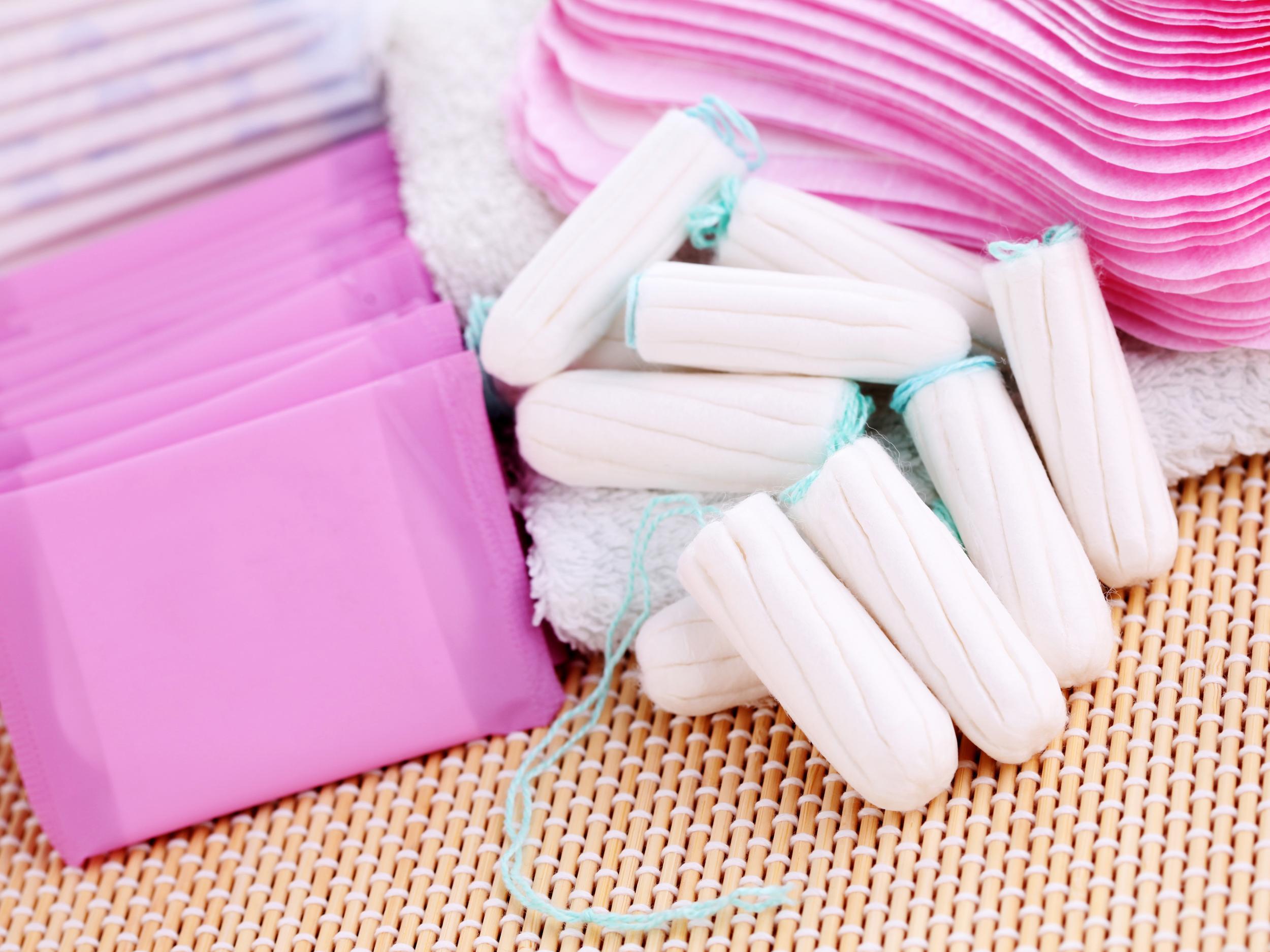Recent reports that female prisoners have been deprived of menstrual products should push us to change social attitudes
This isn’t just a matter of politics and legislation – we can all take action to end the taboo around periods

Your support helps us to tell the story
From reproductive rights to climate change to Big Tech, The Independent is on the ground when the story is developing. Whether it's investigating the financials of Elon Musk's pro-Trump PAC or producing our latest documentary, 'The A Word', which shines a light on the American women fighting for reproductive rights, we know how important it is to parse out the facts from the messaging.
At such a critical moment in US history, we need reporters on the ground. Your donation allows us to keep sending journalists to speak to both sides of the story.
The Independent is trusted by Americans across the entire political spectrum. And unlike many other quality news outlets, we choose not to lock Americans out of our reporting and analysis with paywalls. We believe quality journalism should be available to everyone, paid for by those who can afford it.
Your support makes all the difference.As 2017 drew to a close, I was full of joy about the success of the #freeperiods protest in London, which aimed to raise awareness of the serious impact of period poverty on young people. As one of the speakers, I was able to share my research with an incredibly diverse crowd that included everyone from schoolgirls to members of Parliament.
But then 2018 started with stark and frankly appalling news that the Independent Custody Visiting Association ( ICVA) has written an open letter to the Home Office revealing that police routinely ignore the needs of female detainees on periods, depriving them of menstrual products in a potential breach of human rights and equality law.
This should not be acceptable in today’s world, which is why I started a campaign called #periodpositive, focused on fostering positive attitudes and calling for robust research to address period poverty and menstrual taboos.
As well as calling on politicians to introduce legislation in the area, we can all take action to change this situation. Here are my suggestions for what you can do this year to help the cause.
Consider your own attitudes
Think back to how you first learned about periods and if the person who taught you was knowledgeable and seemed comfortable having the chat. Our perceptions when we’re young really impact how we internalise taboos going forward, and affects every menstrual experience we have from that moment on.
If we want to change the conversation we need to start early, educating young people in an open way, teaching them that there is nothing shameful or embarrassing about periods.
The Department for Education is currently considering how to update the existing sex and relationship guidance and are asking for the public's views. Sharing your experience is a great way to make a difference.
Change the language
Every time you’re likely to refer to menstrual issues as “sanitary”, swap to saying “menstrual”. The term “sanitary” implies that periods are innately dirty, and that these products will save us from our uncleanliness. The word “menstrual” provides a more effective and less biased description, and stops periods from being stigmatised.
Be more open
Don’t hide your menstrual products – walk around with them. If you currently track your period in secret, switch to the main family calendar – especially if you have kids or younger siblings. Make a conscious decision to update your tracker app in public and avoid hiding tampons or pads up your sleeve when you need to go to the bathroom in public.
The more people we see speaking casually and openly about their periods the easier it’ll be to disband the stigma.
Include menstruators who are often ignored
Disabled people, trans and non-binary menstruators, and other people often excluded from the narrative, should all be a part of the conversation.
A good way to begin is ensuring events are accessible and changing your language. Instead of assuming that only (and all) those who identify as female get their periods, keep an open mind and discuss the topic in terms of "menstruators" or "women, girls, and others who menstruate".
Consider alternatives to disposable menstrual products
Tampons and pads aren’t exactly environmentally friendly, and they’re also expensive. There are alternatives out there such as menstrual cups, periods pants and cloth pads (you can even learn to sew your own). If you are already using reusables, you have an opportunity to educate people about the options available to them.
In 2018 there should be nothing shameful about periods, and the sooner we can change social perceptions and attitudes the better.
Join our commenting forum
Join thought-provoking conversations, follow other Independent readers and see their replies
Comments